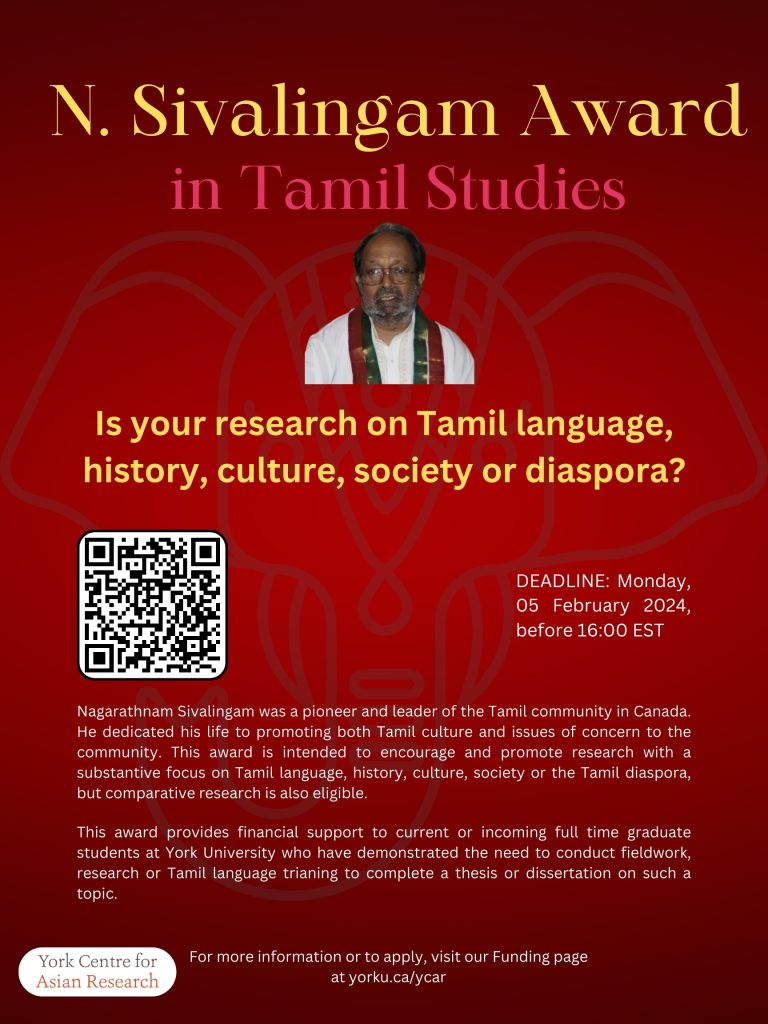Nagaratnam Sivalingam was a pioneer and leader of the Tamil community in Canada, who dedicated his life to promoting both Tamil culture and issues of concern to the community. His family created this award to encourage and promote research with a substantive focus on Tamil language, history, culture, society or the Tamil diaspora, but comparative research is also eligible.


Humairah's research focuses on examining the impact of the forced cremation policy, which the Sri Lankan government imposed during the COVID-19 pandemic. Through her study, Humairah wants to shed light on how this policy affected burial practices, healthcare experiences, and social dynamics within three major religious communities in Colombo: Buddhists, Hindus, and Muslims. Notably, the research addresses the historical neglect of the Muslim population in policy discussions within the context of the longstanding conflict between Sinhalese Buddhists and Tamil Hindus.
A first-generation Canadian, Humairah was born to Sri Lankan Muslim immigrants, and the unique experiences of her family have ignited a deep drive within her to understand marginalized Muslim and racialized minority populations with utmost sincerity and compassion.
“This personal commitment has been a guiding force throughout my life,” she says.
She completed her BA in Human Rights and Equity Studies and is currently in her first year of the MA program in Development Studies. Humairah wears multiple hats in her professional life. She serves as a Program Director with SMILE Canada, an NGO dedicated to empowering Canadian youth with disabilities, reflecting her dedication to fostering inclusivity and social equity within her community. She is also Lab Coordinator at the Global South Migration Lab, actively contributing to research and initiatives related to migration, particularly in the Global South.
She anticipates that her research will also uncover instances of Islamophobia within the broader context of the COVID-19 pandemic in Colombo and will emphasize the need for a more inclusive policymaking approach that considers the unique needs and beliefs of all religious groups in Sri Lanka.
